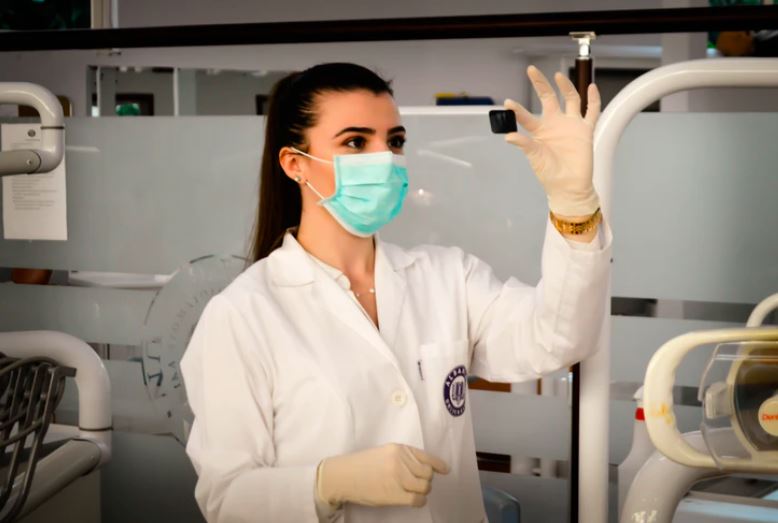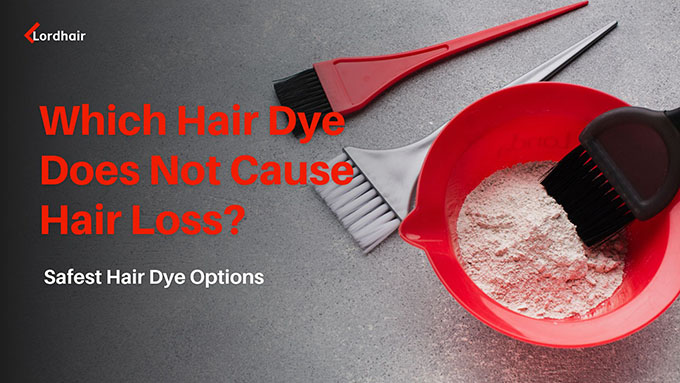Autoimmune Hair Loss: Meaning, Treatments, and Dietary Suggestions
- Written by Lordhair Team
- | Published May 22, 2020
- |
- 4 min read
 Listen to the full text
Listen to the full textThe American Autoimmune and Related Diseases Association states that more than 50 million people in the U.S.A. may be living with autoimmune diseases. Of courses, the global number will be much bigger. It is widely known that several autoimmune diseases cause hair damage, and this is precisely the reason why we are writing this blog.
In this blog, Lordhair will discuss autoimmune hair loss and diseases, available treatments, and recommended diet. Let’s begin by understanding why autoimmune diseases can cause hair loss.
Autoimmune hair loss: Introduction
Autoimmune diseases arise from when your immune system accidentally damages healthy tissue. Autoimmune hair loss occurs when hair tissues (follicles) are at the receiving end of the damage.
When white blood cells attack healthy cells in hair follicles, they damage the follicle and diminish the production of new hair. Thankfully, stem cells aren’t affected by autoimmune diseases and so chances of hair regrowth are strong!
Autoimmune diseases are associated with various degrees of hair loss and we will now talk about the most common diseases.
Autoimmune diseases that trigger hair loss
Before we can attempt to cure autoimmune hair loss, we must understand the medical conditions that trigger it. Below are the major autoimmune diseases that can bring mild to chronic hair loss:
Alopecia areata
Alopecia is one of the most common autoimmune diseases that trigger hair loss in both men and women. In this medical condition, a person’s immune system tells white blood cells to attack healthy hair follicle cells. Follicles then shrink resulting in visible hair loss on the scalp, and sometimes also on the face and body.
Lupus
Lupus is a systemic disease that impacts the joints, skin, kidneys, brain, heart, and lungs. It is an incurable disease and can trigger irreversible hair loss. Hair loss arises from antibodies that penetrate the hair follicles. The body begins to reject the hair shafts which then fall out.
Hashimoto's disease
Also known as chronic lymphocytic thyroiditis, Hashimoto’s disease is behind rising hypothyroidism in the US. This medical condition makes the immune system cells attack the thyroid gland, resulting in inflammation of the thyroid. A low performing thyroid gland restricts hair growth and triggers hair loss.
There are several misconceptions about hair loss and we debunked some of the popular hair loss myths!
Graves’ disease
This autoimmune disease causes antibodies to stick to the thyroid cell’s surface, which results in overstimulation of the thyroid gland. While swollen eyes, anxiety, and weight loss are the most common symptoms, the condition also causes hair loss by affecting the production of new hair on the scalp and also on other parts of the body.
Crohn’s disease
Crohn’s disease has no permanent cure yet. It’s an inflammatory disease that affects the gastrointestinal tract. The condition limits the absorption of vitamins and nutrients into the bloodstream and causes nutritional deficiency. As well as other problems, hair follicles stop regenerating and begin shedding.
Let’s now take a look at some popular treatments available to curb hair loss brought on by autoimmune diseases.
Autoimmune hair loss treatments
Since most autoimmune diseases are treated and managed by experienced medical professionals, medication is usually prescribed for hair loss recovery. Below are the major treatments used in curing the above hair loss conditions.
Minoxidil
This medication is widely recommended for stimulating hair growth and slowing hair fall. However, it can neither aid recovery from a receding hairline nor help restore hair on bald spots. Ranging from scalp irritation to skin rashes, there are several side effects of minoxidil.
Finasteride
Also known as Propecia, this medication is widely recommended for temporary autoimmune hair loss. However, like most medications, it has a lot of side-effects such as chills, cold sweat, and headaches. Therefore, you should use finasteride only after consulting your doctor.
Hair transplants
For men with chronic hair loss, a hair transplant is a popular option. That said, this hair recovery option is very expensive and has noticeable side effects like scarring.
Hair systems
Hair systems are a hair recovery solution for men and women who are experiencing irreversible hair loss and need a risk-free solution. Modern hair systems - also known as toupees, wigs, and hairpieces - are highly realistic and affordable.
Watch how David’s life changed after wearing a hair system
There are other treatments for chronic hair loss like scalp micropigmentation but this treatment, for example, comes with the risk of scalp infection. Therefore, we recommend opting for risk-free solutions as well as having a healthier diet.
Check out the trendiest hair systems of 2020 for men
Autoimmune hair loss diet
Hair needs nutrients to become strong, healthy, and shiny. A balanced diet rich in proteins, vitamins, and minerals will not only promote hair growth but also help fight autoimmune diseases. Here are the top foods to include in your diet to promote body and hair health:
- Eggs: rich in protein
- Berries: high in antioxidants and minerals
- Spinach: rich in calcium, iron, and magnesium
- Sweet potatoes: rich in fiber and protein
- Avocados: rich in fibers
- Nuts: high in fat, fiber, and protein
- Seeds: rich in calcium, zinc, and cooper
In addition to these foods, scalp massages with jojoba oil, olive oil, and coconut oil promote hair growth.
Autoimmune hair loss: An endnote
While autoimmune diseases are very challenging for the medical profession, hair loss related to them can be tackled with the right treatment and support. We highly recommend consulting a professional before opting for any hair recovery treatments that can cause side effects.
At Lordhair, we develop hair replacement solutions that are helping thousands fight hair loss without jeopardizing their health. Our growing range of modern toupees, hairpieces, and medical wigs are shipped across the globe.
Further reading on medical hair loss conditions:
Do you want to learn more about hair systems and how they can help you fight medical hair loss? Get in touch with Lordhair and our hair experts by emailing support@lordhair.com.






